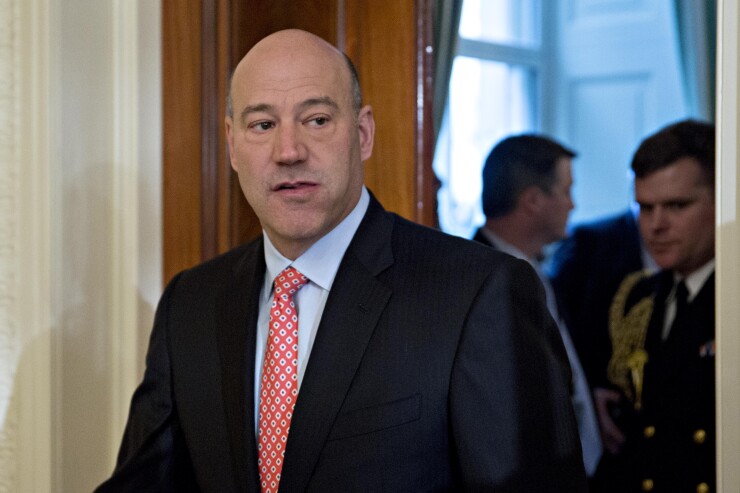Receiving Wide Coverage ...
Keep it simple: Gary Cohn, the former president of Goldman Sachs and current director of the White House National Economic Council, told federal lawmakers in a private meeting that he could support legislation to reinstate the Glass-Steagall Act, which separated commercial from investment banking. According to the Wall Street Journal, Cohn said he "could support a simple policy completely separating the two businesses" and "expressed an openness to working with" Sen. Elizabeth Warren, D-Mass., an ardent critic of big banks, on the issue.

Jaret Seiberg, an analyst with Cowen & Co., said Cohn "was the most likely obstacle within the Trump White House" to restoring the law, which was repealed in 1999. "With him supporting Glass-Steagall's restoration, there is no one in the inner circle left to fight it."
Not guilty: A British jury acquitted two former Barclays traders in their retrial on charges that they plotted to manipulate Libor. The jury acquitted Stylianos Contogoulas and Ryan Michael Reich of conspiracy. A jury trial last summer failed to reach a verdict. The acquittals bring to a close the Libor prosecutions brought by the U.K.'s Serious Fraud Office.
Wall Street Journal
Seeing under water: Financial technology firms in China are using artificial intelligence to analyze hundreds of data points, many of them unconventional, to
Data dispute: Some of Wall Street's biggest firms, including JPMorgan Chase, Citigroup and Goldman Sachs, are concerned about a move by the New York Stock Exchange to try to gain greater control of market data. "At the heart of the dispute is legal language about
What's the catch?: Tax preparation has become a loss leader, even for big tax prep firms like Intuit and H&R Block, who are now willing to do customers' returns for free. Indeed, says the paper, the business "isn't really about taxes anymore. Some are
New York Times
He's back, baby: Renaud Laplanche, the Lending Club co-founder who was ousted from the company last May amid allegations of conflict of interest and findings of falsified loan information during his tenure, is back in business. On Thursday he
Quotable ...
"Victory!!!!! The





